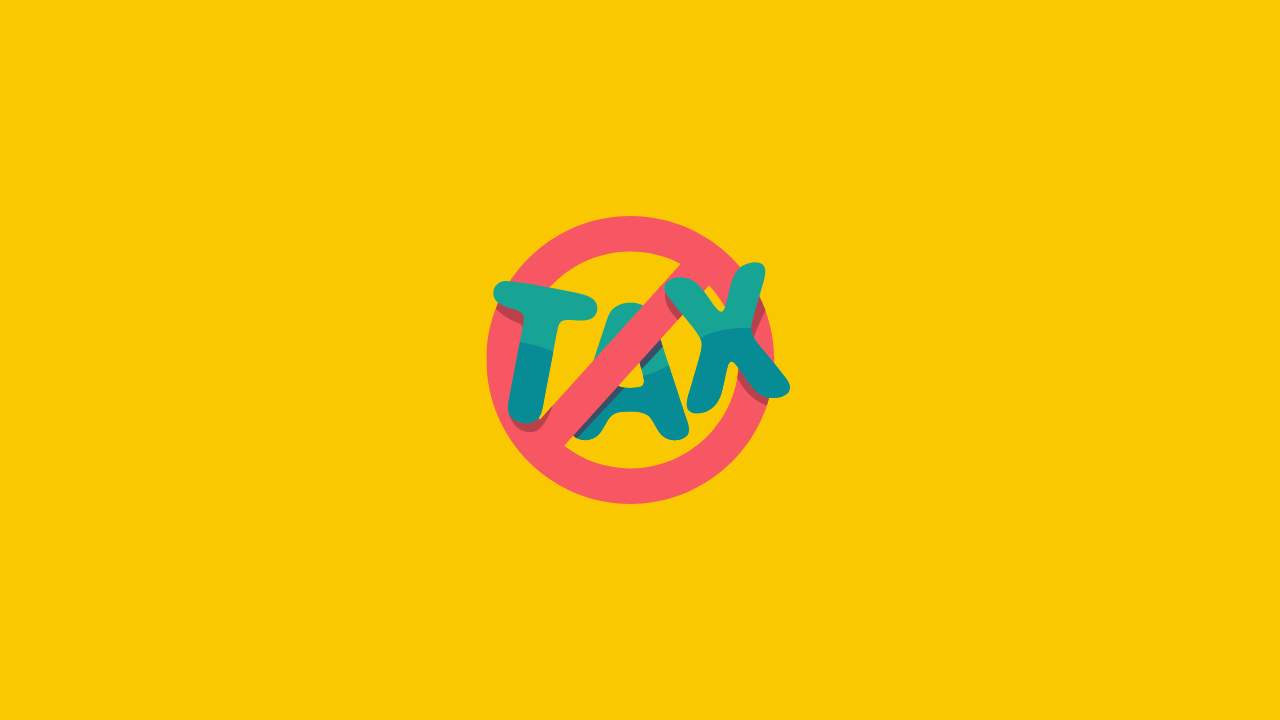
Making a living out of your passion is one of the most rewarding career choices.
However, not every artist becomes Taylor Swift. And for those who are not Taylor Swift, saving every penny of their earning becomes crucial.
One simple way of retaining most of what you earn is by claiming tax deductions.
IRS allows numerous expenses related to your art form, whether buying equipment for your music gigs, researching for your novel, or travel expenses.
This article will discuss tax deductions that artists such as writers, performers, and musicians can avail of while filing taxes.
Artists globally sign up for the doola Total Compliance package to effortlessly manage their taxes while dedicating more time to perfecting their craft(s).
Our tax experts ensure you get all the deductions while ensuring seamless compliance with tax regulations.
Essential Tax Deductions for Artists

Every dollar saved counts for artists, writers, and musicians, whose incomes can be unpredictable and often fluctuating.
Deductions can include a wide range of expenses such as supplies, home office costs, and even travel expenses related to your work.
By understanding and utilizing these deductions, you keep more of your hard-earned money, which can be reinvested into your creative projects. Here are a few of those deductions.
Home Office Deduction
The home office deduction can be a valuable tax benefit for artists who use a portion of their home exclusively for their creative work.
To qualify, the space must be your principal place of business and be used regularly for administrative or managerial activities.
The IRS allows you to deduct a portion of your home’s expenses—such as mortgage interest, rent, utilities, and maintenance—based on the percentage of your home used for business purposes.
There are two methods to calculate this deduction: the simplified option, which allows a standard deduction of $5 per square foot up to 300 square feet, and the regular method, which involves calculating actual expenses.
Accurate record-keeping is essential to substantiate your claim.
Using doola’s Total Compliance package can ensure that you correctly calculate and maximize this deduction, easing the burden of managing your home office expenses in your tax filings.
Supplies and Materials
As an artist, the cost of supplies and materials can add up quickly, making them one of the most significant tax deductions available to you. This includes anything you use to create your work, such as paints, canvases, brushes, musical instruments, and even software for digital art.
These expenses are fully deductible, meaning they can directly reduce your taxable income.
Maintaining detailed records and receipts for all these purchases is crucial to substantiate your claims. Keeping a log of when and how the supplies are used in your work can also be helpful.
Additionally, subscriptions to industry-specific publications or memberships in professional organizations related to your art can be considered deductible expenses.
Leveraging doola Bookkeeping can simplify tracking and categorizing these expenses, ensuring you maximize your deductions and keep your finances in order.
Professional Development
Investing in professional development is crucial for staying competitive in the creative fields, and the good news is that many of these costs are tax-deductible.
Expenses related to attending workshops, seminars, conferences, and courses aimed at improving your skills and knowledge in your artistic field can be deducted from your taxable income.
This includes registration fees, travel expenses, and even accommodation costs if the event is out of town. Additionally, subscriptions to online courses, industry journals, and educational materials also qualify as deductible expenses.
Keeping meticulous records of these expenditures will make it easier to claim them during tax season.
Research Expenses
For writers, research is an integral part of the creative process, and the expenses incurred can often be deducted from your taxable income.
Research expenses may include the cost of books, subscriptions to journals, and online databases that provide valuable information for your writing projects.
Travel expenses related to field research or visiting specific locations for authenticity can also be deductible.
Additionally, fees for accessing archives, museums, or libraries that contribute to your work are considered legitimate deductions.
Keeping detailed records and receipts of these expenses is essential for substantiating your claims with the IRS.
Self-Publishing Costs
Self-publishing allows writers to control their work from creation to distribution, but it also comes with various costs that can quickly add up. Fortunately, many of these expenses are tax-deductible.
Marketing and advertising costs to promote your book, such as website creation, social media ads, and email campaigns, are also deductible. Additionally, fees for ISBNs, distribution services, and shipping costs for sending review copies can be written off.
Software and Subscriptions
Writers often rely on various software tools and subscriptions to streamline work and enhance productivity. Expenses for writing software like Scrivener, grammar checkers like Grammarly, and design tools for creating e-book covers are tax-deductible.
Subscriptions to cloud storage services such as Dropbox or Google Drive, which help safeguard your manuscripts, also qualify as deductible expenses.
Additionally, memberships to professional organizations or subscriptions to industry-specific journals and magazines that keep you updated with the latest trends can be written off.
Instrument and Equipment Costs
Musicians often invest heavily in their instruments and equipment; many expenses are tax-deductible. The cost of purchasing new instruments, repairs, and maintenance for existing ones can be deducted.
Additionally, expenses for essential equipment such as amplifiers, microphones, and recording gear are also considered deductible.
Smaller items like strings, reeds, and sheet music can be written off.
Depreciation may apply to high-value instruments and equipment, allowing you to deduct a portion of the cost over several years. Keep detailed receipts and records to substantiate these deductions.
Travel and Touring Expenses
For musicians, travel and touring are often integral parts of their careers, and many of the associated expenses are tax-deductible. Costs for transportation, including airfare, train tickets, and mileage for driving to gigs, can be deducted.
Additionally, expenses for accommodation, such as hotel stays and even meals while on the road, are deductible.
Maintaining meticulous records and receipts for all travel-related expenses is important to substantiate your claims. Per diem rates can simplify meal expenses, providing a standard daily allowance instead of tracking actual costs.
Also, remember that costs for shipping instruments and equipment to performance locations can be written off.
Recording Studio Fees
Recording studio fees are a significant expense for musicians, but fortunately, they are tax-deductible.
Costs associated with renting studio time, hiring sound engineers, and using specialized equipment can all be deducted from your taxable income.
These expenses are necessary for producing and recording your music, making them eligible for deductions.
If you have a home studio, you can deduct some of your home office expenses, including utilities and equipment depreciation.
Advertising and Promotion
Promoting your art is crucial for gaining exposure and growing your audience, and many advertising expenses are tax-deductible.
This includes costs associated with online ads, social media promotion, print ads, and even the production of promotional materials like flyers and business cards.
Fees for managing your website, including domain and hosting fees, can also be written off.
Legal and Professional Fees
Hiring professionals for legal and financial advice is often necessary, and the fees associated with these services can be deductible.
This includes costs for hiring an attorney to review contracts, an accountant to manage your finances, or even a consultant to provide business advice.
These expenses are considered necessary for maintaining and growing your professional practice.
Detailed records and receipts for these services will be crucial during tax season.
Insurance Premiums
Insurance is essential for protecting your creative work and professional practice. Premiums for health insurance, liability insurance, and even insurance for your equipment and instruments can be deductible.
This also includes insurance policies that protect you in case of cancellations or other work-related disruptions.
Rent and Utility Expenses
If you rent a separate studio space, the rent and utility expenses can be deducted from your taxable income.
This applies to any dedicated workspace used exclusively for your creative activities. Utilities can also be written off, including the studio’s electricity, water, and internet services.
Communication Expenses
Staying connected is vital for any professional, and communication expenses such as phone and internet bills are tax-deductible. This includes the cost of maintaining a business phone line, mobile phone bills, and internet services used for your creative work.
Detailed records and receipts will be necessary to substantiate these expenses, mainly if you use some of these services for personal use.
How Can doola Reduce Your Tax Burden Further
We understand that being a creative entrepreneur comes with its own set of challenges and roadblocks.
That’s why we ensure entrepreneurs and artists earning through their creative pursuits get the maximum benefits while filing tax returns.
Our CPAs guide and assist clients in claiming the maximum possible tax deductions.
Our team can help you as well. Sign up for a consultation with our CPAs today to claim the tax advantages the IRS provides to artists.
FAQs

What are the basic criteria for an artist to qualify for tax deductions?
To qualify for tax deductions as an artist, you must be considered a professional by the IRS, which generally means you engage in your artistic activities with the intent to make a profit. Keeping thorough and accurate records of all your business-related expenses is crucial.
These records will support your claims and help you demonstrate that your artistic activities constitute a legitimate business.
Expenses must be ordinary and necessary for your profession, and you should maintain receipts and documentation to substantiate each deduction claimed.
Can I claim a home office deduction if I use my space for personal and professional activities?
To claim a home office deduction, the space in question must be used exclusively and regularly for your business. This means it cannot be used for personal activities. The area must be your principal place of business or where you meet with clients or customers.
The IRS offers two methods for calculating this deduction: the simplified method, which uses a standard rate per square foot, and the regular method, which involves calculating the actual expenses related to the space.
Accurate record-keeping is vital to ensure you can substantiate your claim if audited.
How do travel and research expenses qualify as tax deductions for writers and musicians?
Travel expenses are deductible if they are directly related to your artistic work, such as attending a conference, performing at a gig, or conducting research for a book. These expenses can include transportation, accommodation, and meals.
Research expenses for writers can include costs for books, journal subscriptions, and travel to specific locations to gather information.
Keeping detailed records of the purpose of each trip and all related receipts is essential to substantiate these deductions.
What types of insurance premiums can artists, writers, and musicians deduct?
Artists, writers, and musicians can deduct premiums for various types of insurance necessary for their business. This includes health insurance, liability insurance, and insurance for their equipment and instruments.
Those premiums are deductible if you purchase insurance policies that protect against cancellations or other disruptions in your work.
Maintaining records of your insurance payments and ensuring they are related to your professional activities is important to claim these deductions accurately.
What professional fees are deductible, and how can they benefit artists?
Professional fees for legal advice, accounting, and consulting services are deductible if they are directly related to your business.
These expenses help you manage your finances, ensure compliance with regulations, and provide legal protection for your creative work.
Hiring a CPA or tax consultant can help you maximize deductions and navigate complex tax laws.
Detailed records and receipts for these services will be crucial during tax season, as they provide the necessary documentation to support your claims.



